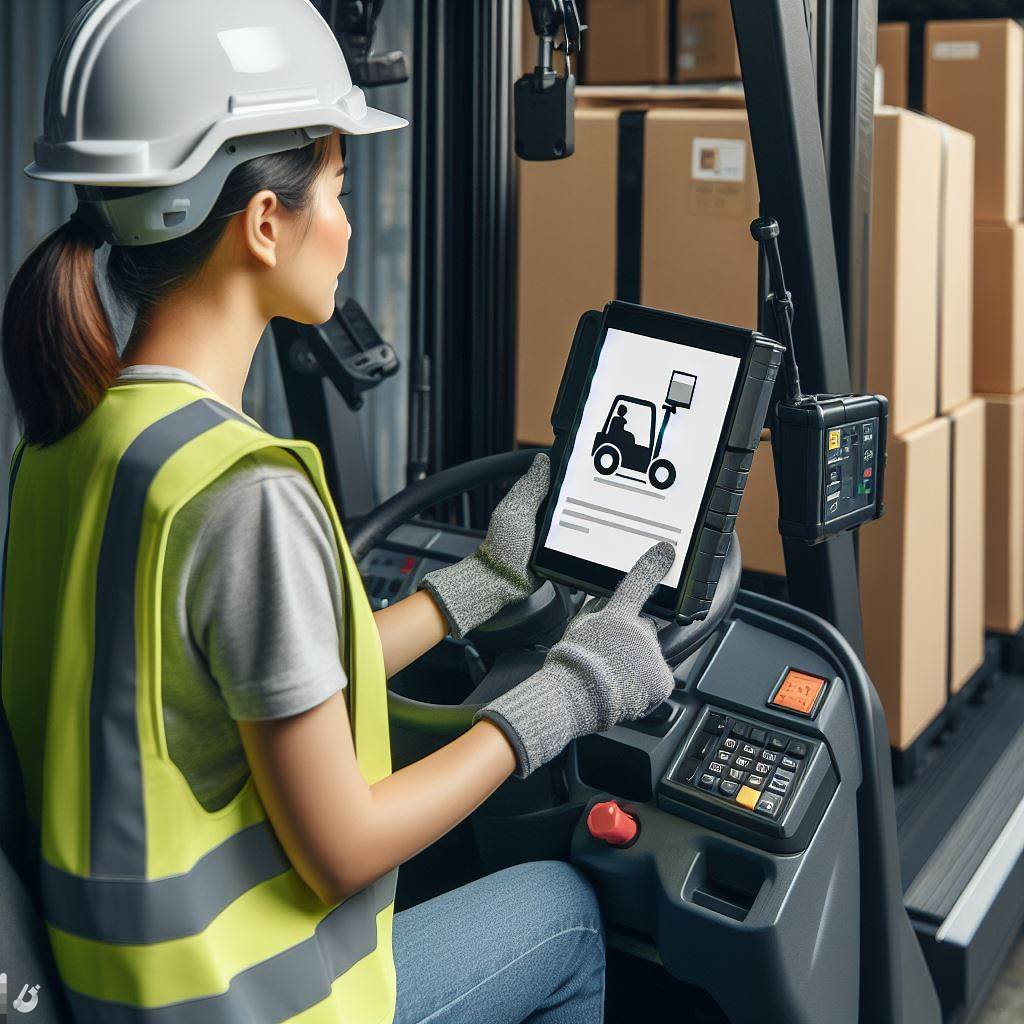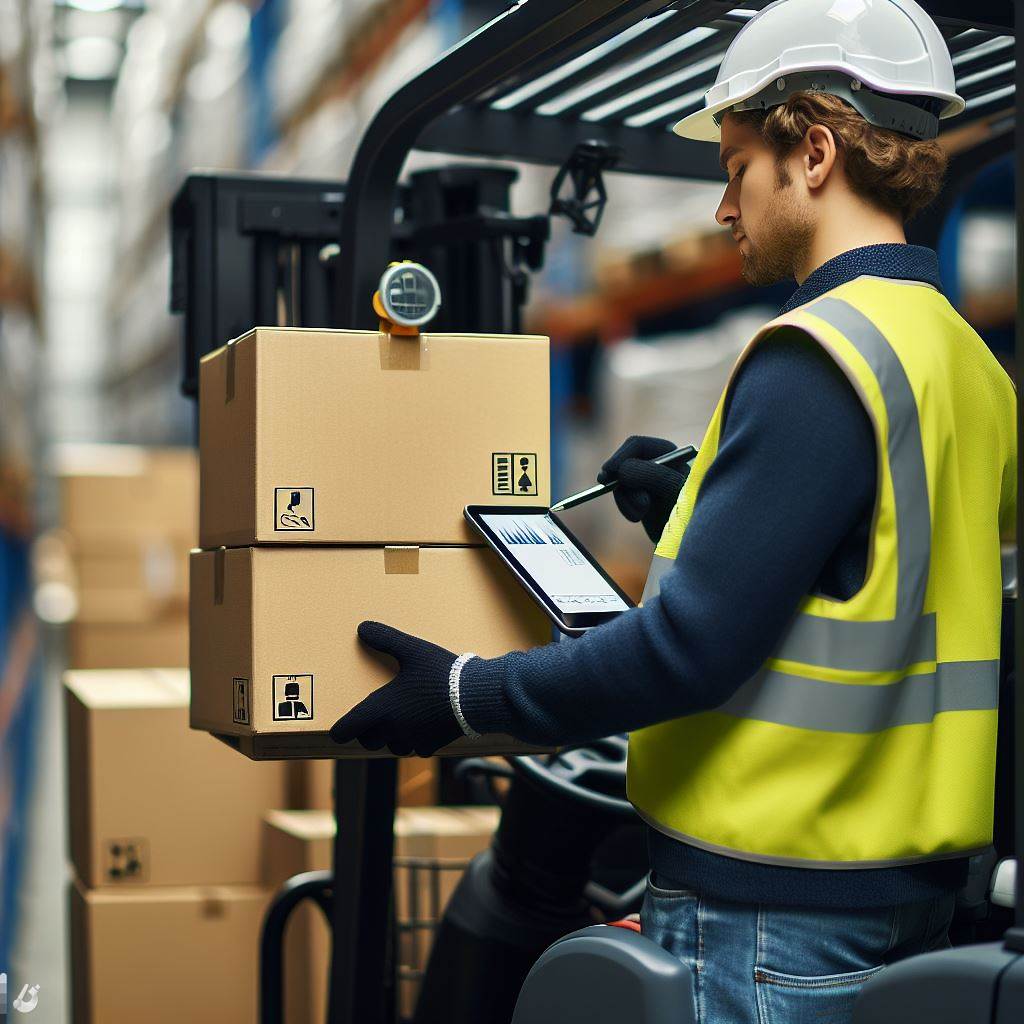Introduction
Logistic coordinator roles play a crucial part in ensuring smooth operations within the supply chain industry.
This blog post aims to compare the role of logistic coordinators in the UK with their global counterparts.
By examining the similarities and differences, we can gain insight into the unique challenges and opportunities faced by these professionals in different regions.
From examining job responsibilities to exploring required skills and qualifications, this post will provide a comprehensive overview of logistic coordinator roles in the UK and globally.
Let’s delve into the exciting world of logistics coordination and discover how it varies across the UK and the rest of the world.
Overview of the logistic coordinator role
Logistic coordination is a crucial aspect of maintaining efficiency in the supply chain industry.
Whether at a local or global scale, the responsibilities and duties of a logistic coordinator remain largely the same.
In this section, we will explore the role, responsibilities, and importance of logistic coordination in various industries.
- A logistic coordinator is responsible for overseeing and managing the flow of goods and services.
- They ensure timely and cost-effective delivery of products by coordinating with suppliers and distribution centers.
- Logistic coordinators analyze data and make recommendations to optimize supply chain processes.
- They play a key role in inventory management and maintaining accurate records of all shipments.
Responsibilities and duties of a logistic coordinator
- Coordinate transportation, storage, and distribution activities to meet customer demand.
- Manage and resolve issues related to transportation delays, damaged goods, and order discrepancies.
- Ensure compliance with regulations and industry standards for safety, quality, and environmental protection.
- Collaborate with various departments, including procurement, production, and customer service.
- Monitor inventory levels and place orders to replenish stock as needed.
- Track and analyze key performance indicators to identify areas for improvement.
- Prepare and present reports on logistics performance, costs, and operational efficiency.
Importance of logistic coordination in various industries
Effective logistic coordination is crucial for the success of multiple industries, including:
Manufacturing
- Ensures timely delivery of raw materials and components to production facilities.
- Optimizes inventory levels, reducing storage costs and minimizing production disruptions.
Retail
- Facilitates the efficient movement of goods from suppliers to stores or distribution centers.
- Helps maintain optimal stock levels and reduce out-of-stock situations.
E-commerce
- Manages the complexities of order fulfillment, shipping, and reverse logistics.
- Enables fast and reliable delivery, enhancing customer satisfaction and loyalty.
Healthcare
- Ensures the safe and timely delivery of critical medical supplies and equipment.
- Reduces the risk of stockouts and ensures uninterrupted patient care.
Construction
- Coordinates the delivery of materials, machinery, and equipment to construction sites.
- Minimizes project delays and ensures efficient utilization of resources.
In short, logistic coordination is essential for the smooth functioning of various industries.
Logistic coordinators play a vital role in managing the flow of goods and services, ensuring timely and cost-effective delivery.
By effectively coordinating transportation, storage, and distribution activities, they optimize supply chain processes, reduce costs, and enhance customer satisfaction.
In today’s globalized world, the responsibilities and duties of a logistic coordinator remain consistent, whether in the UK or on a global scale.
Read: Eco-Friendly Practices in UK Logistics
Logistic Coordinator Role in the UK
Logistic coordination plays a critical role in ensuring efficient supply chain management.
Personalized UK Career Consulting
Receive tailored career guidance designed just for you. Get actionable steps and expert support to boost your career in 1-3 days. Take control of your career now.
Get StartedWhile the responsibilities and skills required for a logistic coordinator are similar globally, there are certain unique aspects that pertain specifically to the UK market.
The specific responsibilities and skills required for a logistic coordinator in the UK
Responsibilities
A logistic coordinator in the UK is responsible for overseeing the movement of goods and materials.
Skills Required
Attention to detail, organizational skills, and the ability to work under pressure are essential for this role in the UK.
Understanding the intricacies of local regulations and laws is crucial for logistic coordinators operating in the UK.
Importance of Understanding Local Regulations and Laws
In the UK, there are several regulations and laws that govern logistics operations, such as road transport regulations and customs compliance.
- Logistic coordinators must have a thorough understanding of these regulations to ensure compliance and avoid any legal issues.
- They need to stay updated with changes in regulations and adapt their processes accordingly.
Failure to comply with local regulations can result in delays, fines, and negative reputational consequences.
Career Prospects and Growth Opportunities in the UK
The logistic coordinator role in the UK offers significant career prospects and growth opportunities.
- With the UK being a major hub for international trade, the demand for skilled logistic coordinators is high.
- Logistic coordinators can explore various sectors such as manufacturing, e-commerce, and retail.
- There is a potential for career progression into managerial roles within the logistics field.
Furthermore, gaining additional certifications and qualifications can enhance career prospects in the UK logistic coordinator role.
In fact, the logistic coordinator role in the UK requires specific responsibilities and skills, including attention to detail, organizational abilities, and the ability to work under pressure.
Understanding local regulations and laws is essential to ensure compliance and avoid legal issues.
The UK offers promising career prospects and growth opportunities for logistic coordinators, especially in the context of a thriving international trade sector.
Read: Train Operator Shift Patterns in the UK
Logistic coordinator role globally
Logistic coordinators play a vital role in managing and optimizing supply chains on a global scale.
While their responsibilities may vary from country to country, the fundamental objective remains the same: to ensure seamless transportation and distribution of goods.
Your Dream Job Starts with a Perfect CV
Get a tailored CV and cover letter that captures your unique strengths and stands out in your industry. Let us help you make an unforgettable first impression.
Get StartedIn this blog section, we will compare and contrast the logistic coordinator role in the UK with global roles, discuss the skills and qualifications needed in a global context, and highlight the challenges and opportunities in working as a logistic coordinator globally.
- Logistic coordinators worldwide are responsible for coordinating various aspects of supply chain management.
- They oversee transportation, inventory control, warehousing, and distribution to ensure timely delivery of goods.
- Global logistic coordinators collaborate with suppliers, manufacturers, and distributors across different countries.
- They must possess excellent communication and negotiation skills to deal with international partners.
- A keen eye for detail and strong problem-solving abilities are crucial for identifying and resolving logistical issues.
Comparison of the Logistic Coordinator Role in the UK and Globally
- In the UK, logistic coordinators focus primarily on domestic transportation and distribution.
- Global roles require logistic coordinators to navigate complex international trade regulations and customs procedures.
- UK logistic coordinators may have a narrower scope, primarily coordinating within the country’s borders.
- Global logistic coordinators operate on a broader scale, ensuring efficient logistics across countries and continents.
- Both UK and global logistic coordinators must possess strong organizational skills and the ability to prioritize tasks.
Skills and Qualifications for a Logistic Coordinator in a Global Context
- An understanding of international trade laws, customs regulations, and import/export procedures is essential.
- Proficiency in using logistics software and systems is necessary for tracking shipments and managing inventory.
- Strong analytical skills and the ability to interpret data are crucial for optimizing supply chain processes.
- Fluency in multiple languages can be a significant advantage when working with diverse international stakeholders.
- A degree in logistics, supply chain management, or a related field is often preferred by employers.
Challenges and Opportunities in Working as a Logistic Coordinator Globally
- Global logistic coordinators face challenges such as differing time zones, cultural barriers, and language barriers.
- Adapting to local customs and business practices is vital for successful international collaboration.
- However, working globally also presents opportunities for personal growth, cultural exchange, and expanding professional networks.
- Global roles can provide exposure to diverse markets, allowing logistic coordinators to develop a comprehensive skill set.
- Successfully navigating global logistics opens doors to diverse career opportunities in multinational companies.
In essence, the role of a logistic coordinator globally encompasses a wide range of responsibilities and challenges.
While the UK logistic coordinator focuses on domestic requirements, global roles demand versatility, international expertise, and adaptability.
By understanding the skills and qualifications required, individuals can thrive in this dynamic field and contribute to the smooth functioning of global supply chains.
Read: Health Tips for Long-Haul Bus Drivers

Key Differences between UK and Global Logistic Coordinator Roles
In this blog section, we will explore the key differences between logistic coordinator roles in the UK and on a global scale.
We will also discuss the variations in logistic processes and practices across different countries and regions.
Additionally, we will analyze the cultural, legal, and logistical challenges that arise when coordinating global logistics.
Finally, we will explore the impact of technological advancements on global logistic coordination.
- Responsibilities of a logistic coordinator in the UK may differ from those in global roles.
- UK logistic coordinators may focus more on domestic logistics, while global coordinators handle international operations.
- Language skills and cultural understanding may be more important for global logistic coordinators.
- Coordination with international suppliers and customers is a crucial aspect of global logistic roles.
- Global logistic coordinators may have a broader scope and need to adapt to various regulations.
Variations in Logistic Processes and Practices across Different Countries and Regions
Logistic processes and practices can vary significantly depending on the country and region.
Here are some examples:
- Customs regulations differ, requiring different documentation and clearance processes in each location.
- Infrastructure quality may vary, impacting transportation modes and delivery reliability.
- Cultural norms and business practices influence communication styles and expectations.
- Supply chain maturity levels may differ, affecting the efficiency and reliability of logistic operations.
- Legal requirements, such as labor laws and import/export regulations, vary across countries.
Challenges in Coordinating Global Logistics
Coordinating global logistics can present various challenges due to cultural, legal, and logistical factors:
- Cultural differences can lead to misunderstandings, affecting communication and relationships with international stakeholders.
- Navigating complex legal frameworks and compliance requirements in different countries is crucial to avoid legal issues.
- Logistical challenges like time zone differences and distance can impact coordination and lead times.
- Language barriers may hinder effective communication, resulting in delays and errors.
- Managing multiple transportation modes, customs procedures, and documentation requires careful coordination.
Impact of Technological Advancements on Global Logistic Coordination
Advancements in technology have revolutionized global logistic coordination practices:
- Automation and digitalization have streamlined processes, reducing manual errors and enhancing efficiency.
- Real-time tracking and monitoring systems enable accurate visibility of goods throughout the supply chain.
- Data analytics empower logistics professionals to make data-driven decisions for optimization and cost savings.
- Communication tools and collaboration platforms facilitate seamless coordination among global teams.
- E-commerce platforms have expanded market reach and changed customer expectations for fast and reliable delivery.
In general, logistic coordinator roles in the UK differ from global positions due to various factors.
Optimize Your LinkedIn for Success
Boost your LinkedIn profile with a professional bio, keyword-rich headline, and strategic recommendations that attract recruiters. Stand out from the crowd and get noticed.
Optimize NowLogistic processes and practices vary across countries and regions, presenting unique challenges.
Coordinating global logistics requires addressing cultural, legal, and logistical complexities.
Technological advancements have significantly impacted global logistic coordination, enhancing efficiency and enabling real-time visibility.
Stay tuned for more insights on logistic coordination in future sections.
Read: Navigating UK’s Bus Operator Licenses
Pros and Cons of Working as a Logistic Coordinator in the UK and Globally
Benefits and Drawbacks of Pursuing a Logistic Coordinator Career in the UK
In the United Kingdom, working as a logistic coordinator offers several advantages.
The strong logistics industry provides ample career growth opportunities for individuals willing to invest their time and efforts.
Additionally, competitive salaries are often offered to skilled professionals in this field.
However, there are drawbacks to pursuing a logistic coordinator career in the UK.
The high cost of living, especially in major cities like London, can significantly impact disposable income.
Moreover, the fierce competition for job positions poses a challenge for individuals entering the field.
Limited geographical reach may also restrict opportunities for professionals seeking global exposure.
Advantages and Disadvantages of Working as a Logistic Coordinator in a Global Context
Working as a logistic coordinator in a global context has its own set of advantages.
Operating in an international environment exposes individuals to diverse cultures, broadening their perspectives and allowing for personal and professional growth.
The global nature of the role also provides access to a broader range of job prospects, increasing the potential for career advancement and higher remuneration.
Nevertheless, there are certain disadvantages that come with working as a logistic coordinator in a global context.
Language and cultural barriers can make communication and collaboration challenging, potentially impacting the efficiency of operations.
The complexity of international logistics, such as customs regulations and supply chain dynamics, adds another layer of difficulty to the role.
Additionally, frequent travel may be required, which can disrupt work-life balance and affect personal relationships.
Job Market Conditions and Potential Job Security in Both Scenarios
Job market conditions for logistic coordinators in the UK are generally stable.
The logistics sector continues to experience steady demand for skilled professionals, offering good potential for job security.
However, it is important to stay updated with industry trends and adapt to new technologies and practices to maintain competitiveness.
On a global scale, the job market for logistic coordinators is competitive due to the ongoing process of globalization.
Industries differ in their levels of job security, influenced by various factors such as economic conditions and industry-specific challenges.
It is crucial for professionals to stay adaptable and continuously improve their skills to remain relevant in a rapidly changing world.
In a nutshell, working as a logistic coordinator in the UK and globally has its own set of pros and cons.
While the UK offers a robust logistics industry and potential career growth, individuals should consider the high cost of living and limited geographical reach.
Globally, professionals can benefit from exposure to diverse cultures and broader job prospects, but may face language barriers and increased complexity.
Ultimately, understanding the job market conditions and having the ability to adapt will contribute to long-term job security regardless of the chosen context.
Conclusion
In this blog post, we explored the differences between the logistic coordinator role in the UK and global roles.
We highlighted that while the core responsibilities may be similar, there are some unique challenges and opportunities when working as a logistic coordinator in the UK compared to global roles.
Overall, the logistic coordinator role in the UK has a greater focus on localized operations and compliance with UK-specific regulations.
On the other hand, global logistic coordinators have a wider reach, dealing with diverse cultural and legal frameworks.
It’s clear that both roles offer exciting prospects, and professionals in this field should consider their career goals and preferences when deciding on the scope of their work.
Whether you choose to specialize in the UK or go for global opportunities, logistic coordination careers are in high demand and offer a fulfilling path.
Aspiring logistic coordinators are encouraged to further explore the opportunities and challenges in this field.
By staying updated with industry trends and acquiring relevant skills, they can excel in both the UK and global roles.
If you’re passionate about supply chain management and problem-solving, a career as a logistic coordinator might be the perfect fit for you.
Start your journey today and unlock a world of possibilities!
[E-Book for Sale]
500 Cutting-Edge Tech Startup Ideas for 2024 & 2025: Innovate, Create, Dominate
$19.99 • 500 Tech Startup Ideas • 62 pages
You will get inspired with 500 innovative tech startup ideas for 2024 and 2025, complete with concise descriptions to help you kickstart your entrepreneurial journey in AI, Blockchain, IoT, Fintech, and AR/VR.




